The preeminent British film publication, Sight & Sound, recently released their top 100 films of all-time. This list is released every ten years, and it’s a pretty big deal in the film world. This is a strange list that I think perplexes most filmgoers. Many movie lovers are confused and frustrated that there are so few movies they recognize on the list. This has much to do with who’s invited to take the poll (critics and filmmakers), how the poll is worded (“greatest of all time”), and how the poll is compiled.
Sight & Sound asks each participant to list what they believe to be the top ten greatest movies of all time. Then they just use the raw numbers to compile the list. For example, this year, Chantal Akerman’s Jeanne Dielman, 23 Quai du Commerce, 1080 Bruxelles was mentioned more often in critics’ top ten lists than any other film, hence its number one position in the list. If you try and make a top ten list of your own, it becomes much easier to see how so many directors and films did not make the cut. Many people have pointed out that Spielberg doesn’t make the list. There’s a lot of great Spielberg movies, but which one would you pick: Jaws? Close Encounters of the Third Kind? Schindler’s List? Some directors have so many great movies that their films cancel each other out. For example, one might have added Jaws out of deference for Spielberg’s body of work. Whereas, another critic that wanted to do the same thing voted for Schindler’s List instead. You can see how the work of prolific directors might get lost in the shuffle this way. I’d say this could’ve easily have happened to Tarantino, P.T. Anderson, Wes Anderson, and the Coen brothers.
It’s also important to note that these films are supposed to be the “greatest” films of all time and not necessarily your “favorite” films. It’s easy to confuse the two, and I think it’s the absence of this distinction that explains much of the backlash around this list.
Some of the backlash has been about the list being a so-called “woke” list. This is mostly just silly politicking, though there are certainly movies that might be there because individual critics wanted to diversify their lists. I’m not sure why that’s a problem. These are all great movies. The list isn’t written in stone. It’ll change again in ten years and, when it does, we’ll all have another opportunity to find things to debate about. And so it goes.
The top ten films I would’ve picked for the Sight & Sound Poll:
1. Pather Panchali (1955) Directed by Satyajit Ray
2. Stalker (1979) by Andrei Tarkovsky
3. Wild Strawberries (1955) by Ingmar Bergman
4. Night and Fog (1956) by Alain Resnais
5. Killer of Sheep (1977) by Charles Burnett
6. A Man Escaped (1956) by Robert Bresson
7. In the Mood for Love (2000) by Wong Kar Wai
8. Apocalypse Now (1979) by Francis Ford Coppola
9. Paths of Glory (1957) by Stanley Kubrick
10. Raging Bull (1980) by Martin Scorsese
The next fifteen are films that I couldn’t go without mentioning:
11. Winter Light (1963) Directed by Ingmar Bergman
12. Tokyo Story (1953) by Yasujirō Ozu
13. Rififi (1955) by Jules Dassin
14. Dr. Strangelove or: How I Learned to Stop Worrying and Love the Bomb (1964) Directed by Stanley Kubrick
15. The Hustler (1961) by Robert Rossen
16. The Godfather Part II (1974) by Francis Ford Coppola
17. Two Women (1960) by Vittorio de Sica
18. Come and See (1985) by Elim Klimov
19. Ivan’s Childhood (1962) by Andrei Tarkovsky
20. Cléo from 5 to 7 (1962) by Agnès Varda
21. Orpheus (1950) by Jean Cocteau
22. Last Year at Mareinbad (1961) by Alain Resnais
23. Confidentially Yours (1983) by François Truffaut
24. The Life and Death of Colonel Blimp (1943) by Michael Powell and Emeric Pressburger
25. Son of Saul (2015) by László Nemes
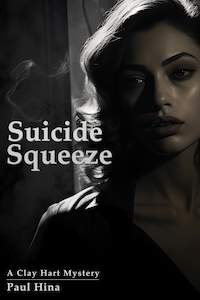
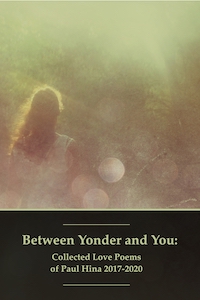
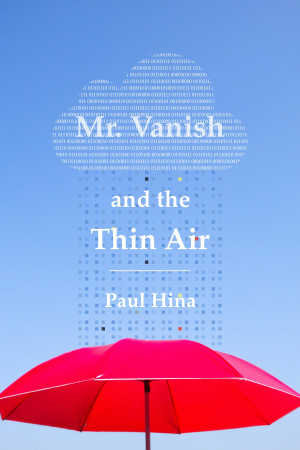
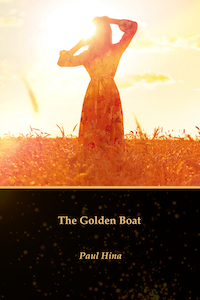
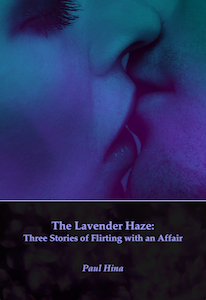
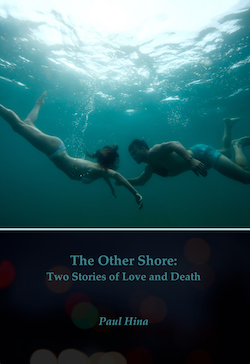
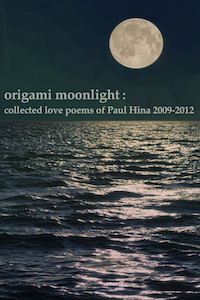
 Double Play, the first novel in the Detective Clay Hart Series, is available. It is currently on sale at
Double Play, the first novel in the Detective Clay Hart Series, is available. It is currently on sale at